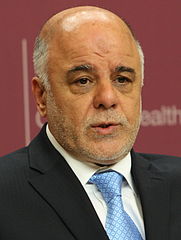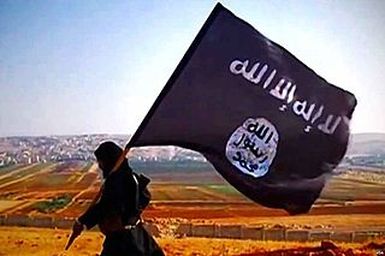 Haider al-Abadi PM of Iraq Haider al-Abadi PM of Iraq Iraqi Prime Minister Haider al-Abadi finally managed to get parliament approval for five of six candidates he presented for cabinet. Only his pick for trade minister was rejected. Al-Abadi has been trying to implement reforms to his cabinet demanded by many including the influential cleric Moqtada al-Sadr. Demonstrators have twice broken into the Green Zone the highly protected area containing the parliament as well as many embassies. Moqtada wants the cabinet to consist of technocrats rather than chosen by a corrupt system of sharing appointments among competing political groups. The appointments will help consolidate Al-Abadi's position and help ease the political crisis and deadlock within the system, as parliamentarians had earlier rejected his reforms. Brett McGurk envoy to the anti-ISIS coalition welcomed the development in a tweet saying that this overcomes months of deadlock. However 15 of the 22 ministers have kept their jobs so far. The defense minister Khaled al-Obeidi is under pressure as he is being grilled in parliament about allegations of corruptions involving weapons contracts. Al-Abadi wants him to stay as the battle to retake the city of Mosul from the Islamic State (IS) is looming. Al-Obeidi's explanations have been rejected by parliament. However, another vote will be required demanding his resignation to fire him. Iraq is infamous for its level of corruption ranking 161 of 168 countries in the Transparency International Corruption Index. Iraq still suffers from power and water cuts, shortages of schools and hospitals, with existing infrastructure suffering from neglect and mismanagement. The new oil minister Jabar al-Luaibi claimed that a solution to the federal government's conflict over oil with the Kurdish self-ruled northern region was possible. Baghdad wants to bring the region's crude oil exports under its control. Luaibi was a former head of the South Oil Company. After Saudi Arabia, Iraq is OPEC's largest producer, at about 4.6 million barrels a day. Most exports are from the southern region and are overseen by the South Oil Company. About 500,000 barrels a day are exported from the Kurdish region independently. If a solution to the conflict is found Baghdad could export some of its oil through Kurdistan and on to a Turkish port on the Mediterranean. Sources: http://www.reuters.com/article/us-mideast-crisis-iraq-oil-minister-idUSKCN10Q0Y3 http://www.reuters.com/article/us-mideast-crisis-iraq-oil-idUSKCN10Q0TL https://en.wikipedia.org/wiki/Haider_al-Abadi
0 Comments
|
Like this writer's work please donate:
Ken Hanly
Ken is a retired philosophy professor living in the boondocks of Manitoba, Canada, with his Filipina wife. He enjoys reading the news and writing articles. Politically Ken is on the far left of the political spectrum on many issues.
Archives
November 2016
Categories
All
|

 RSS Feed
RSS Feed

